Robert Gates Memoir: Top Damaging Assessments That Will Be Used in Campaign Attack Ads
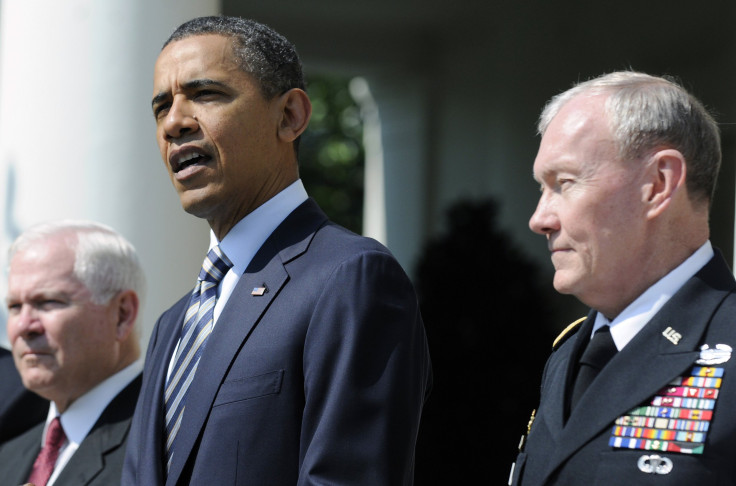
He always seemed like such a self-effacing guy, so former Pentagon chief Robert Gates took Washington by surprise when he unleashed some strong opinions about the Obama administration in his new memoir, "Duty" (to be published next week by Alfred A. Knopf).
Gates, who played a pivotal role as defense secretary in George W. Bush's second term and Barack Obama's first term, spares no punches in the upcoming book, criticizing Obama for his leadership and commitment to the war in Afghanistan, slamming Vice President Joe Biden for being wrong on almost everything and expressing utter disdain for the U.S. Congress. Here are some of the targets at which he aims:
Obama
Gates reinforces the president’s reputation of being cool and cerebral to a fault. He compares him unfavorably to Bush, who was passionate and could tear up at a Medal of Honor ceremony.
One quality I missed in Obama was passion, especially when it came to the two wars. … I worked for Obama longer than Bush and I never saw his eyes well up.
Though the Obamas cared deeply about the troops, Gates writes, he faults the president for not believing in their mission. He writes that when soldiers put their lives on the line, they need to know that the commander in chief who sent them in harm’s way is behind them all the way. “President Obama never did that.”
Obama felt insecure about not getting respect from the military leadership, asking Gates and Joint Chiefs Chairman Adm. Mike Mullen, “Do they [Gen. David Petraeus, Gen. Stanley McChrystal] resent that I never served in the military?” Another time, in front of 30 people, Obama accused Petraeus, Gates and Mullen of forcing his hand on troop deployments to Afghanistan, which Gates considered “highly disrespectful” but it made him realize: "The president doesn’t trust his commander, can’t stand [Afghan President Hamid] Karzai, doesn’t believe in his own strategy, and doesn’t consider the war to be his. For him, it’s all about getting out.”
Gates also portrays Obama as almost beholden to gay activist groups on the Don't Ask Don't Tell issue, once writing to Mullen that “they are listening only to the gay and lesbian groups … and not willing to wait to listen to the troops: ‘It’s all politics, and I’ve had it.’” At one meeting, Obama told Gates that he had to react “somehow” to federal court decisions on the issue “or the [gay] groups will go crazy.” When they continued to disagree about repealing the law, Obama grew angry, brushing aside Gates and making “a dismissive gesture that said, Don’t even try to be friendly with me because I am really angry. He was as angry with me as I had ever seen him.”
Hillary Clinton
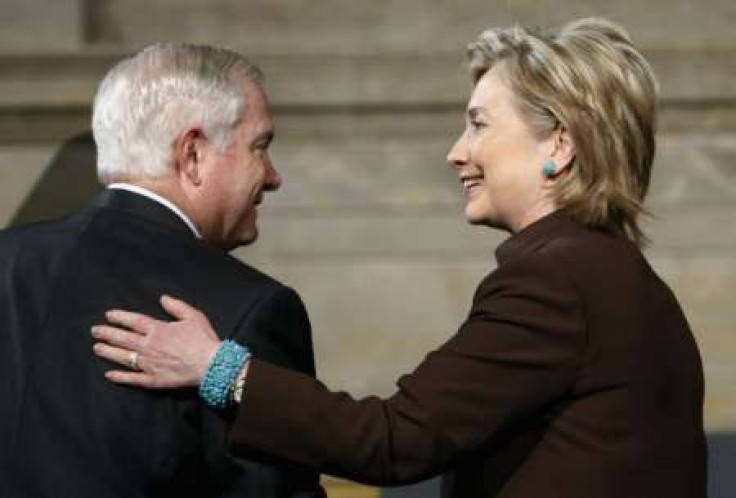
The former secretary of state and possible 2016 presidential candidate admitted that her opposition to the 2007 troop surge in Iraq was politically motivated, writes Gates.
Hillary told the president that her opposition to the surge in Iraq had been political because she was facing him in the Iowa primary…The president conceded vaguely that opposition to the Iraq surge had been political. To hear the two of them making these admissions, and in front of me, was as surprising as it was dismaying.
At the time, Clinton and Obama were locked in a fierce battle for the 2008 Democratic nomination, and the Iraq War was a major campaign issue. She was struggling to attract war-weary voters who were attracted to Obama because he had initially opposed the war while she voted in its favor when she was in the Senate.
Joe Biden
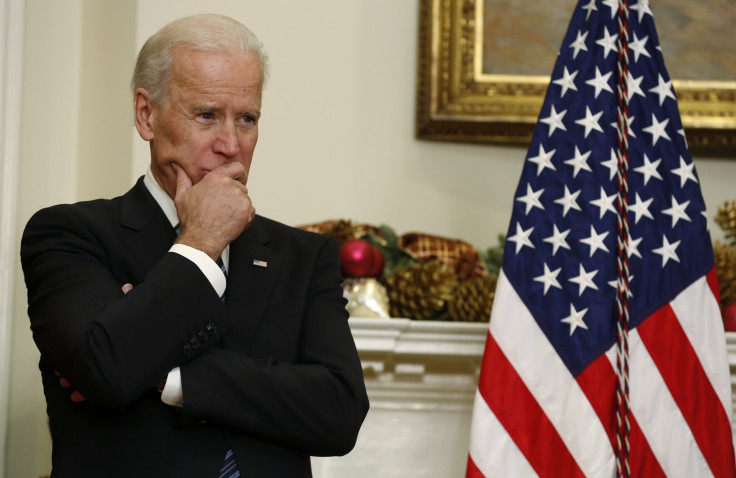
In one of Gates’s most withering lines, he slams the vice president and possible 2016 presidential candidate for being “wrong on nearly every major foreign policy and national security issue over the past four decades.”
After a meeting at the White House, when Mullen once joked with Gates about the fact that he had agreed with Biden on some issue, Gates replied that he was now “rethinking my position.”
Gates also derides Biden for once trying to pressure Gates by telling him that the president’s decision should be considered an “order.” To which Obama quickly said, “I am giving an order.” Gates was taken aback by the need to make that assertion:
I was shocked. I had never heard a president explicitly frame a decision as a direct order. With the American military, it is completely unnecessary. As secretary of defense, I had never issued an “order” to get something done… Obama’s “order,” at Biden’s urging, demonstrated, in my view, the complete unfamiliarity of both men with the American military culture. That order was unnecessary and insulting, proof positive of the depth of the Obama White House’s distrust of the nation’s military leadership.
Another time, amid debate over whether to provide an “air bridge” between Tunisia and Egypt for Egyptian refugees, Biden barked at Gates, “The president orders you to do the bridge.” Gates writes: “I’d had enough of Biden’s ‘orders.’”
Obama White House
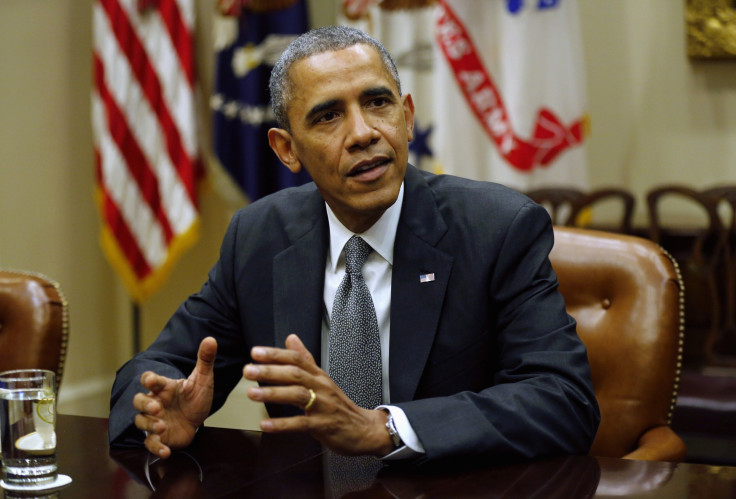
Gates was disappointed at the Obama team’s constant need to denigrate Bush and his administration. Discussions in the Situation Room always involved this analysis: “Everything was awful and Obama and his team had arrived just in time to save the day.”
Obama and his team seemed overly focused on the politics of crucial military issues like the troop levels in Afghanistan, writes Gates. After Gates made his pitch to the president, Obama immediately stated that there would be no political support for any troop increase.
I left the meeting discouraged less about the skepticism regarding more troops than about the total focus on the politics. Biden was especially emphatic about the reaction of the Democratic base… Not a word was mentioned about doing whatever it took to achieve the goals the president had so recently set or to protect the troops… I was stunned. The Democrats controlled both houses of Congress and the White House was running scared.
Gates came close to quitting several times. After a September 2009 meeting in which Obama angrily shot down a request for more troops. He was “deeply disturbed… If I couldn’t do what I thought was necessary to take care of the troops, I didn’t see how I could remain as secretary.” Then amid debate over how to resolve the Libyan crisis, he also considered resigning over resistance to his opposition to military involvement in the country.
After the successful raid to kill Osama Bin Laden, Gates warned the president and top officials not to release any operational details of the raid. “Everybody in that room agreed to keep mum on details. That commitment lasted about five hours. The initial leaks came from the White House and CIA. They just couldn’t wait to brag and to claim credit.” At one point Gates screamed at then-National Security Adviser Tom Donilon: “Why don’t everyone just shut the f**k up?”
And he was surprised at their inexperience – at their first meeting in the Situation Room, Gates had to remind about half of the participants to turn off their cell phones since they were at risk of “broadcasting everything that was said to foreign intelligence electronic eavesdroppers.”
During the G-20 meeting in London, one administration staffer was so naïve that he convinced Obama to collar the Turkish and Armenian foreign ministers together to get them to work out their problems. “Since the two countries have one of the world’s most bitter, intractable and long-standing adversarial relationships, the effort was predictably unsuccessful and embarrassing.”
Gates, who worked in seven presidential administrations, writes that Obama’s White House “was by far the most centralized and controlling in national security of any I had seen since Richard Nixon and Henry Kissinger ruled the roost.”
Harry Reid

Gates castigates the Democratic Senate majority leader for his “defeatism” in his opposition to the 2007 troop surge in Iraq, saying that his comments were the worst of any member of Congress. Gates was so outraged that he shared privately with his staff a Lincoln quote from the Civil War: “Congressmen who willfully take action during wartime that damage morale and undermine the military are saboteurs and should be arrested, exiled or hanged.”
He also accuses Reid of petty provincial politics – instead of calling Gates to discuss the surge or major issues, he would pester the Defense chief with requests to have the Pentagon invest in research on irritable bowel syndrome or to complain about Air Force objections to construction of a windmill farm in Nevada. “I didn’t know whether to laugh or cry,” Gates writes.
Nancy Pelosi

Gates bristles with unbridled contempt for the Democratic House minority leader and former speaker, accusing her of putting politics before policy. She rejected Gates’s personal pitch for the defense appropriations bill in 2007, prompting him to sarcastically note, “After all, one wouldn’t want facts and reality – not to mention the national interest – to intrude upon partisan politics, would one?”
She was shameless and relentlessly partisan on the Iraq War. In fact, it was impossible to have a sensible discussion with Democrats in Congress on anything to do with Iraq in the presence of television cameras.
Patty Murray
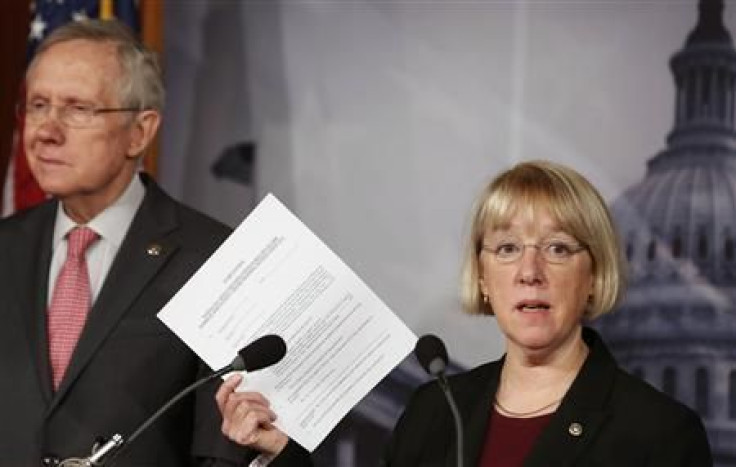
During the heated duel between Boeing and Airbus over a $35 billion contract to build 179 tanker aircraft for the Pentagon, both companies deployed on their behalf plenty of lawmakers, who “were outrageous in their claims and pressures… At one hearing, one of my staff was walking behind Senator Patty Murray of Washington and noticed that no one had bothered to remove the Boeing letterhead from her talking points.”
Both companies, and supporters of both in Congress, were all, in my view, reprehensible in the tactics and distortions they employed to drive the Defense Department to a decision in their favor.
U.S. Congress
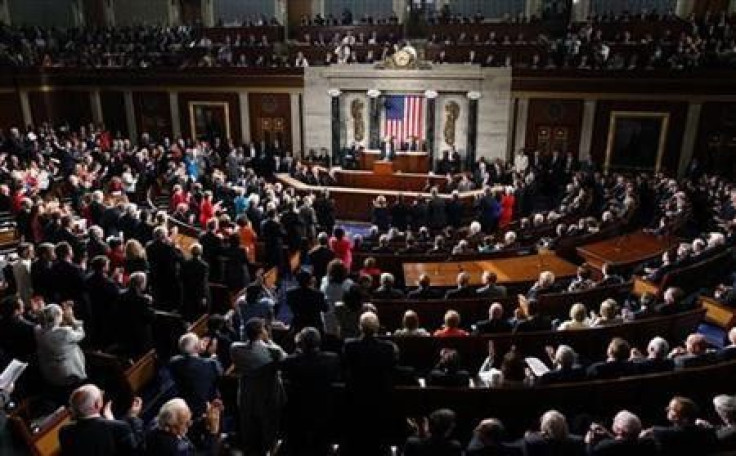
Gates is unrelenting in his attacks on Congress – from unnecessary pet projects that members tried to insert into defense appropriations bills to the grandstanding that took place during congressional hearings.
I would listen with growing outrage as hypocritical and obtuse American senators made all these demands of Iraqi legislators and yet themselves could not even pass budgets or appropriations bills… So many times I wanted to come right out of my chair at the witness table and scream, ‘You guys have been in business for over two hundred years and can’t pass routine legislation. How can you be so impatient with a bunch of parliamentarians who’ve been at it a year after four thousand years of dictatorship?’
He blasts members of Congress for larding up appropriations bills with pork, in which they could “irresponsibly hang all manner of parochial, often stupid, and militarily unnecessary expenditures onto those bills… even worse, members would often eliminate items we had requested in the supplementals to fight the wars and substitute their pet projects.”
In the end, Gates writes that Congress up close “is truly ugly” and the behavior of lawmakers during “kangaroo court” hearings was “rude, insulting, belittling, bullying and all too often personal attacks…”
Uncivil, incompetent in fulfilling basic constitutional responsibilities (such as timely appropriations), micromanagerial, parochial, hypocritical, egotistical, thin-skinned, often putting self (and reelection) before country – this was my view of the majority of the United States Congress.
Benjamin Netanyahu

Gates’s disdain for the Israeli prime minister is clear, describing a moment soon after he first met "Bibi," then Israel's deputy foreign minister, during the first Bush administration.
I was offended by his glibness and his criticisms of U.S. policy – not to mention his arrogance and outlandish ambition – and I told national security advisor Brent Scowcroft that Bibi ought not be allowed back on White House grounds.
Gates is very critical of the Israeli leadership, writing that “Israel’s strategic situation is worsening, its own actions contributing to its isolation.”
© Copyright IBTimes 2024. All rights reserved.











